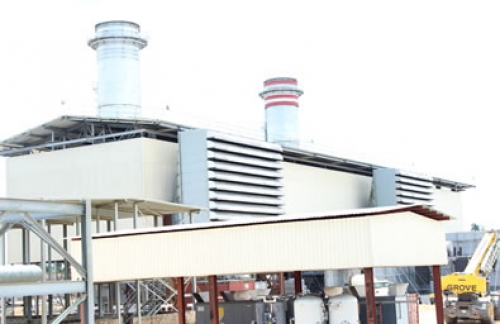By Oke Peter
At least Eight out of the 27 power plants in Nigeria were shut down on April 9, due to gas, line and frequency management constraints, data from the Power Generation Report by the Ministry of Power, Works and Housing, has shown.
For instance, the Trans Amadi Gas Turbine (GT) 1 and 2 were out due to line constraints while GT 3 was on fault. GT 4 tripped on generator differential lockout.
Also, ASCO Power plant GT1, was shut down due to leakage in the furnace, while Ihovbor Nigerian National Integrated Power Project (NIPP) GT 1 was out due to gas constraint. GT2 was also out due to malfunctioning gas regulating valve.
Alaoji NIPP Gas Turbine 1, 2, and 4 tripped due to low gas pressure, while GT3 was shutdown due to generator air inlet filter trouble.
Afam IV and V Gas Power Plant GT13-16 were out on blade failure. GT17 tripped on loss of excitation. GT18 was out on inspection and maintenance, while GT19 and 20 are awaiting major overhaul.
Sapele Steam’s ST1 tripped on low drum level, ST2 was shut down for maintenance, ST3 was out on stator winding problem, ST4 and 5 are awaiting major overhaul while ST6 tripped on gas control valve not following reference point.
Speaking on the Federal Government’s plans for the power sector, the Minister of Power, Works and Housing, Babatunde Raji Fashola, emphasized the need to utilise renewable energy in the country.
According to him, efforts must be concentrated to develop renewable energy along with conventional power plants to maintain a balanced energy in the short, medium and long term.
Fashola said renewable energies were the fastest power plant that can be deployed as the technologies required are compatible with what he described as the nation’s decentralised, stand alone for local and rural communities.
He stated: “The huge energy deficit and the negative environmental impact of using fossil fuel for energy generation as well as the falling costs of renewable energy technologies like solar power, are driving the current energy transition towards renewable energy as being witnessed across the world.”
Fashola said Government is implementing off-grid renewable energy solutions such as rural mini-grids, and standalone home solutions.
He also said emphasis should be on how to utilise stranded power now available in the country.
“The reality is that we have 7,000mw and we are selling 5,000mw. So, the conversation we should be having is how to connect to the remaining 2,000mw,” he added.







